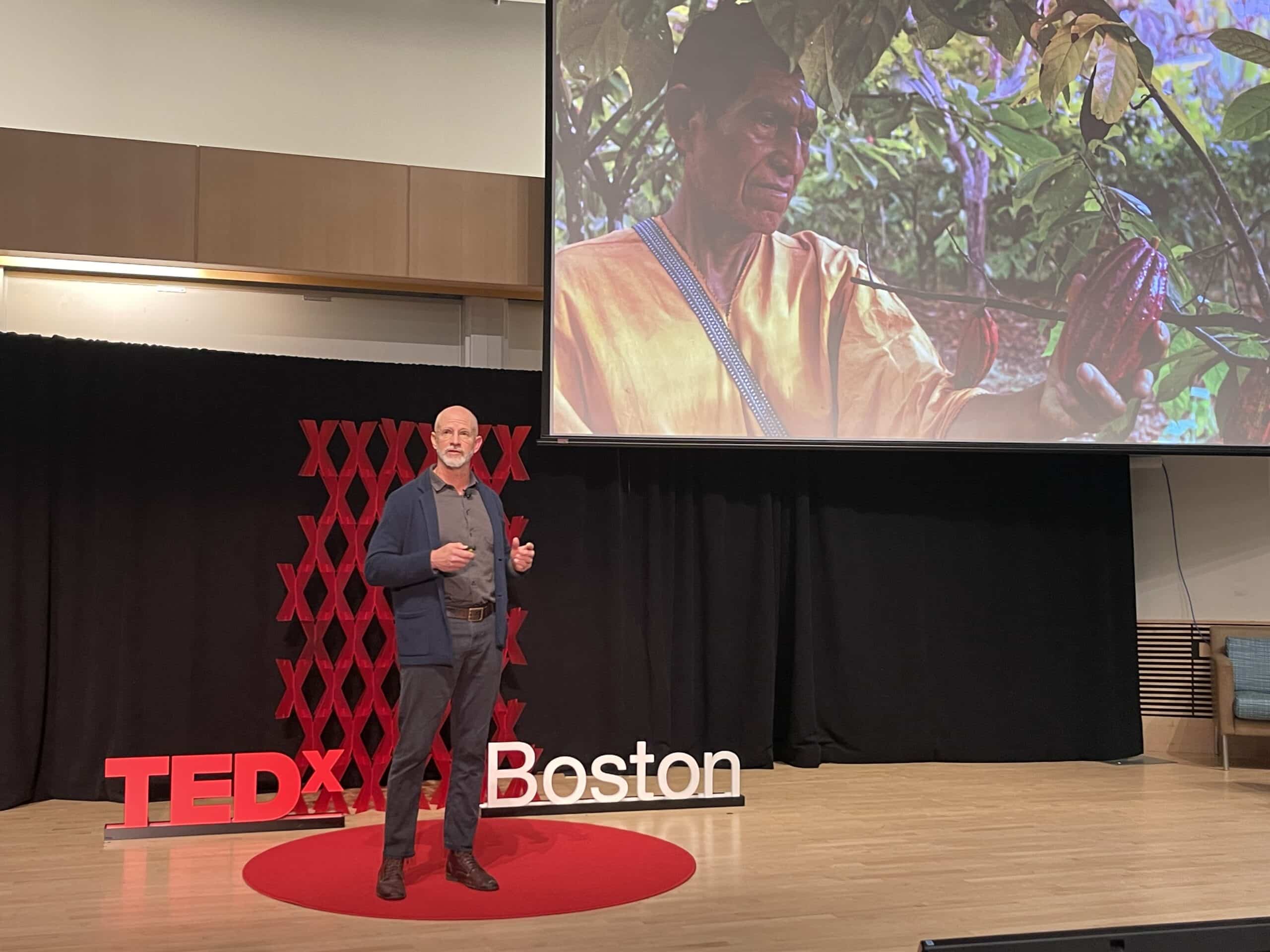
To save our beloved coffee, and all the benefits that come with it, we need a more comprehensive approach to this existential threat of climate change.
– Willy Foote
Use of the term “agroforestry” continues to grow in popularity in conversations around agriculture, climate change, and deforestation, but what exactly is agroforestry? And what is its practical use?
At this year’s TEDxBoston event, Root Capital Founder and CEO Willy Foote sought to provide those answers, at least as to how they relate to coffee. During his 10-minute talk, he illustrated how coffee’s value extends far beyond giving us our daily jolt of energy; it also provides livelihoods for 12.5 million farmers and can be deployed as a tool in the fight against climate change.
Willy outlined how and why we must scale up the use of agroforestry and invest in the smallholder farmers who have been practicing these nature-based solutions for generations.
- Research suggests that 50% of current coffee lands will likely be unable to grow coffee within this century due to climate change. This is bad news for the 66% of people in the U.S. who drink at least two cups a day. Far more urgent, however, is that the loss of these coffee lands will wreak havoc on smallholder farmers’ livelihoods.
- Nature-based solutions, including agroforestry, are a key element to combat climate change. Agroforestry is the practice of intentionally combining trees with shrubs and crops (like coffee) to create a resilient ecosystem that benefits farmers, biodiversity, and the climate. Agroforestry is one of many regenerative agricultural practices that has been practiced for generations by farmers, local peoples, and indigenous communities.
- Less than 1% of current climate financing goes to smallholder farmers. Despite their wealth of knowledge and their position as frontline forces against the climate crisis, the voice of smallholder farmers is too often ignored by far-away decision makers. The lack of global investment in smallholders is a moral failure and a massive missed opportunity to direct resources to those among the most well-positioned to be climate action leaders.
Meet MEACCE
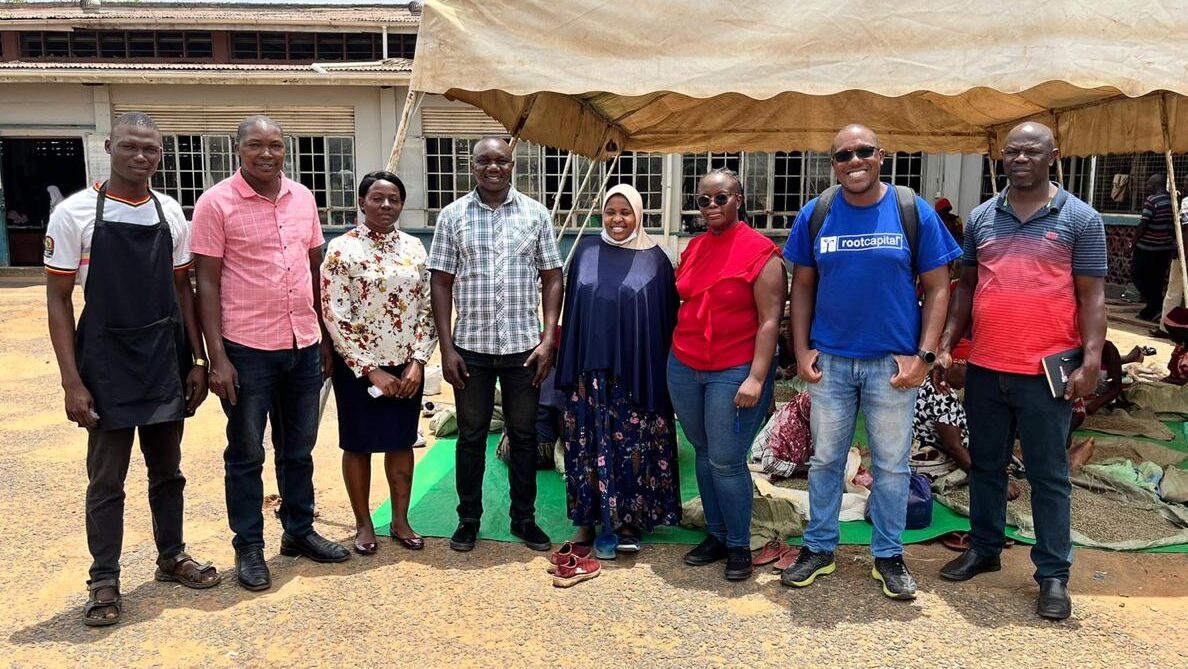 Root Capital’s Peter Onguka alongside members of MEACCE. Photo credit: Peter Onguka/Root Capital.
Root Capital’s Peter Onguka alongside members of MEACCE. Photo credit: Peter Onguka/Root Capital.
There is ample evidence of successful investments in smallholder farmers who utilize nature-based solutions as part of their agricultural practice. One example is the Mt Elgon Agroforestry Communities Cooperative Enterprise, known as MEACCE. MEACCE is made up of more than 3,000 farmers located near the buffer zone of the Mt Elgon Biosphere Reserve in Uganda. In the past decade, this area has experienced roughly 400 landslides, which have killed and displaced thousands of people.
Agroforestry as a Solution
Since Root Capital’s initial loan of $150,000 to MEACCE in 2020, their sales have increased by five times and they are currently in the process of planting 11 million trees, which will sequester carbon and prevent the erosion of soil, a major contributor to landslides.
Right now, the global conversation around climate change is focused on scaling back fossil fuels and decarbonizing the energy sector. And while these elements are certainly important, they are just one piece of the puzzle. There is a vast network of agricultural communities across the world that are an untapped resource in the fight against climate change. Global investment in these communities is absolutely critical if there is going to be any chance of staving off the worst effects of the climate crisis.
Watch Willy’s full TEDxBoston talk, “Brewing a Solution: Coffee, Agroforestry and the Race Against Climate Change,” here.
You may also be interested in...
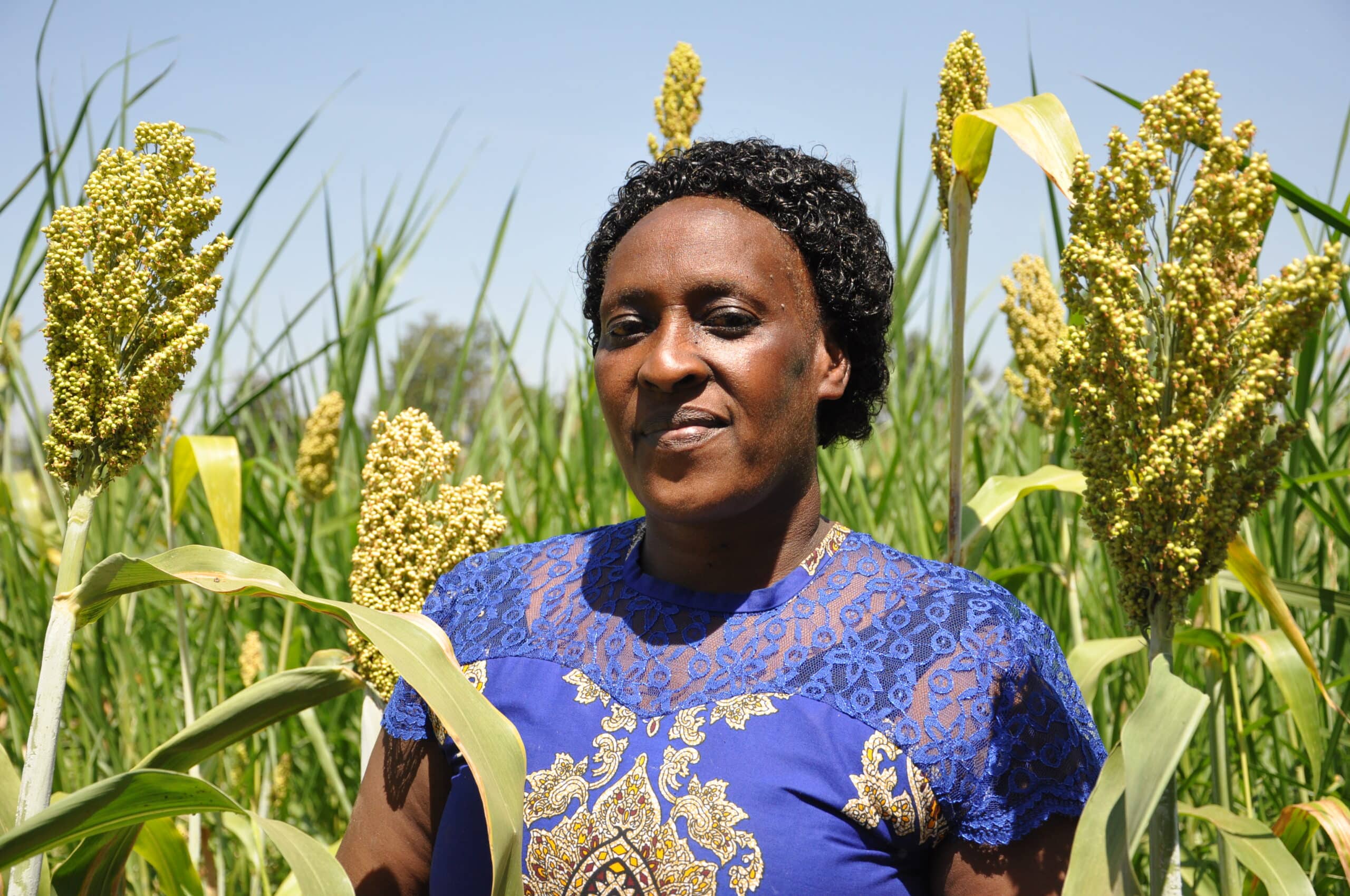
Announcing Our New Climate Resilience Roadmap Annual Report
Deep in the Meru region of Kenya, Shalem Investments has witnessed firsthand the effects of shifting
Date:
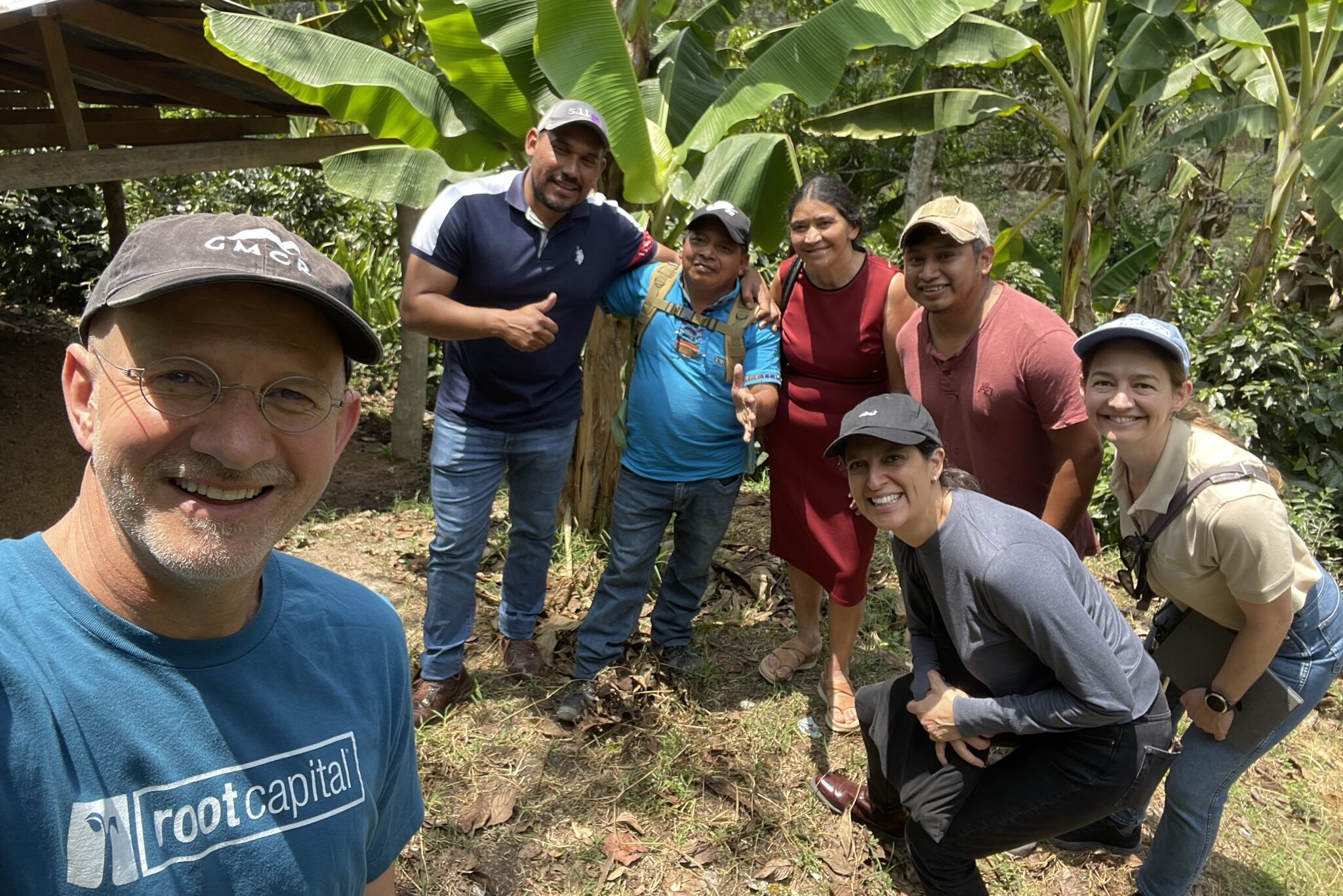
IN PHOTOS: How Small Businesses Are Driving Rural Prosperity and Tackling Climate Change in Honduras
In March, I went on my fourth trip with Root Capital—one very near and dear to my heart because it was to my home country: Honduras. As someone who was born and grew up there—and who has since spent a career working to address the challenges of poverty, climate change, and migration in this region and beyond—it was very meaningful to once again be amid the verdant farms and vibrant communities at the heart of this work…
Date:
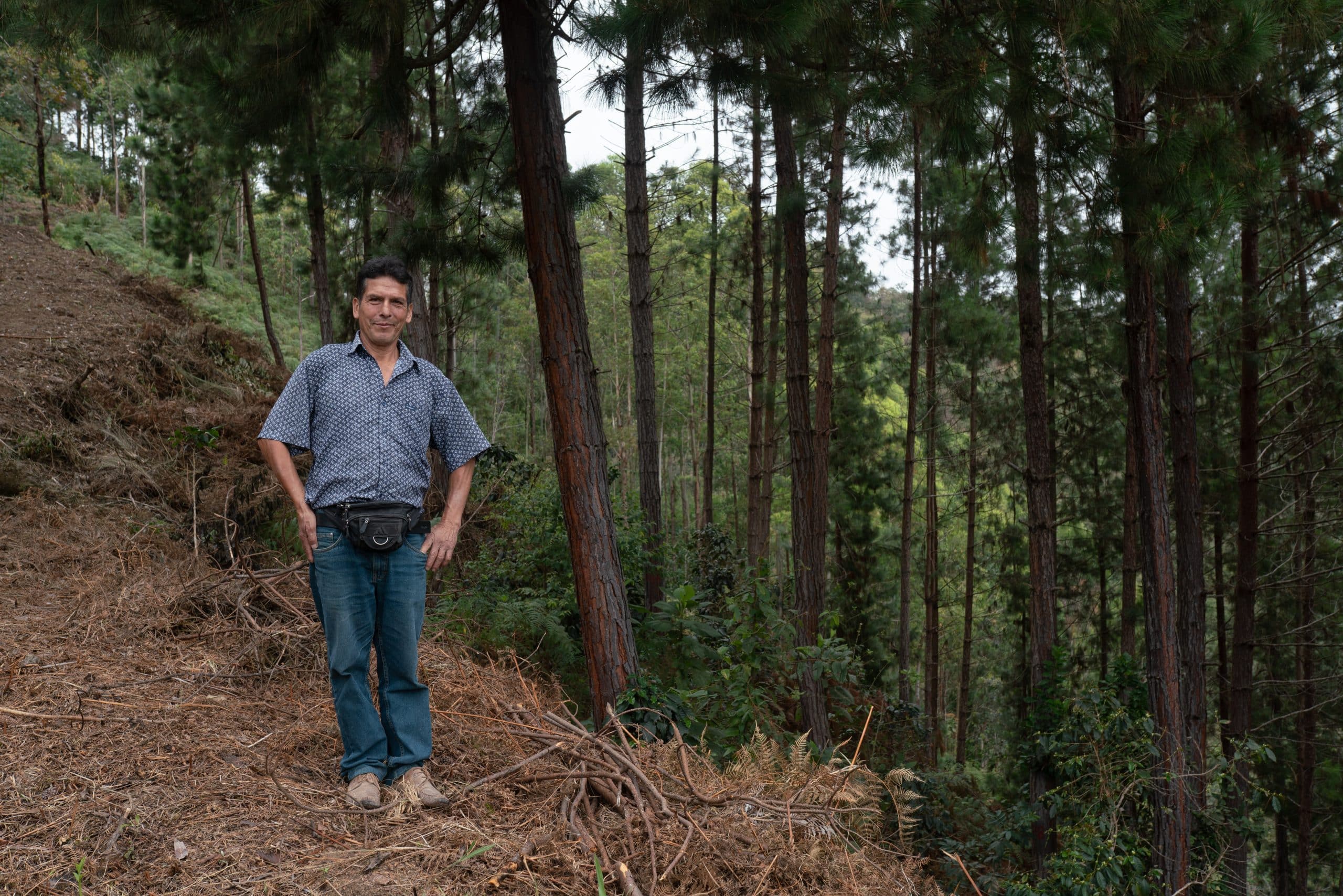
Carbon, Climate, and Coffee: Paying Farmers for Their Efforts to Combat Climate Change
CENFROCAFE producer member Anselmo Díaz on his coffee farm. Rumi Bamba, Las Pirias, Jaen, Cajamarca, Peru.
Date:
